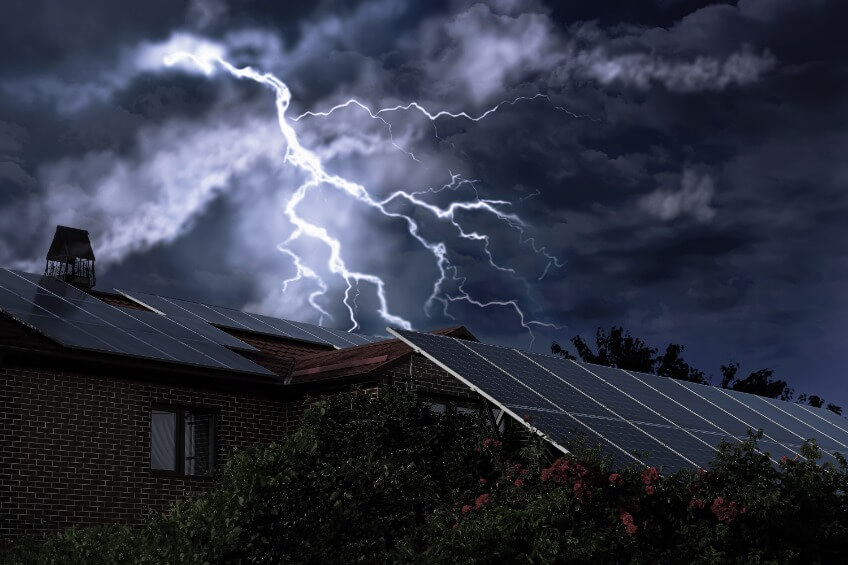
A common concern we hear from potential customers is about the efficacy of solar panels on cloudy days. Solar panels, of course, need sunlight to produce energy, and although the power generated on a cloudy day may be a little less than a sunny day, they will still produce energy. Consider a time when you were outside for a several hours on a cloudy day and you still came home with a sunburn. That’s because solar radiation can penetrate clouds. Output decrease on these days is mainly dependent on the thickness of the cloud cover and the quality of the solar panels, but it’s likely to see a drop of about 10-25%.
Luckily for us here in Utah, we are not one the cloudiest states. This means the cloud cover shouldn’t be a big factor against solar energy usage. The top 10 cloudiest states in the US, according to the Farmers’ Almanac, are Washington, Vermont, Alaska, New York, Oregon, West Virginia, Michigan, Ohio, Montana, and Connecticut. But don’t think these states can’t still benefit from solar panel usage. They just need to be more precise on placement and invest in a high efficiency system.
According to the Solar Energy Industries Association, “Photovoltaic panels can use direct or indirect sunlight to generate power, though they are most effective in direct sunlight. Solar panels will still work even when the light is reflected or partially blocked by clouds.” Even better, the rain is seen as an overall positive for solar panels. They continue, saying: “Rain actually helps to keep your panels operating efficiently by washing away any dust or dirt.” Although output will be less on rainy, dark sky days, the output loss is a short-term concern. The removal of residue during a downpour can provide a significant output boost to your system.
Additionally, solar panels do not need hot weather for the generation of electricity. In fact, the combination of sunny summers and cold winters is a benefit to solar panels. Once the weather hits above about 80 degrees, it can be stressful for those panels. So, Utah’s temperature variations are not a deterrent for solar energy.
Along similar lines as cloudy days, some people may be concerned about placing solar panels in a shady location. A shady location is not an ideal place to install solar panels, but energy generation still occurs. Experts will install a solar energy system in the sunniest location so they can work optimally. But, if your home or business is surrounded by trees or structures that consistently shade the area, there are still good reasons and many benefits to a solar system. Factors to consider include the duration of the shading each day, the technology used in the solar panels, the inverter setup, how many panels you’ll need to use, and location options for placement around your home or business.
To get started on a premium solar energy system in Utah, contact Four Seasons Solar.
